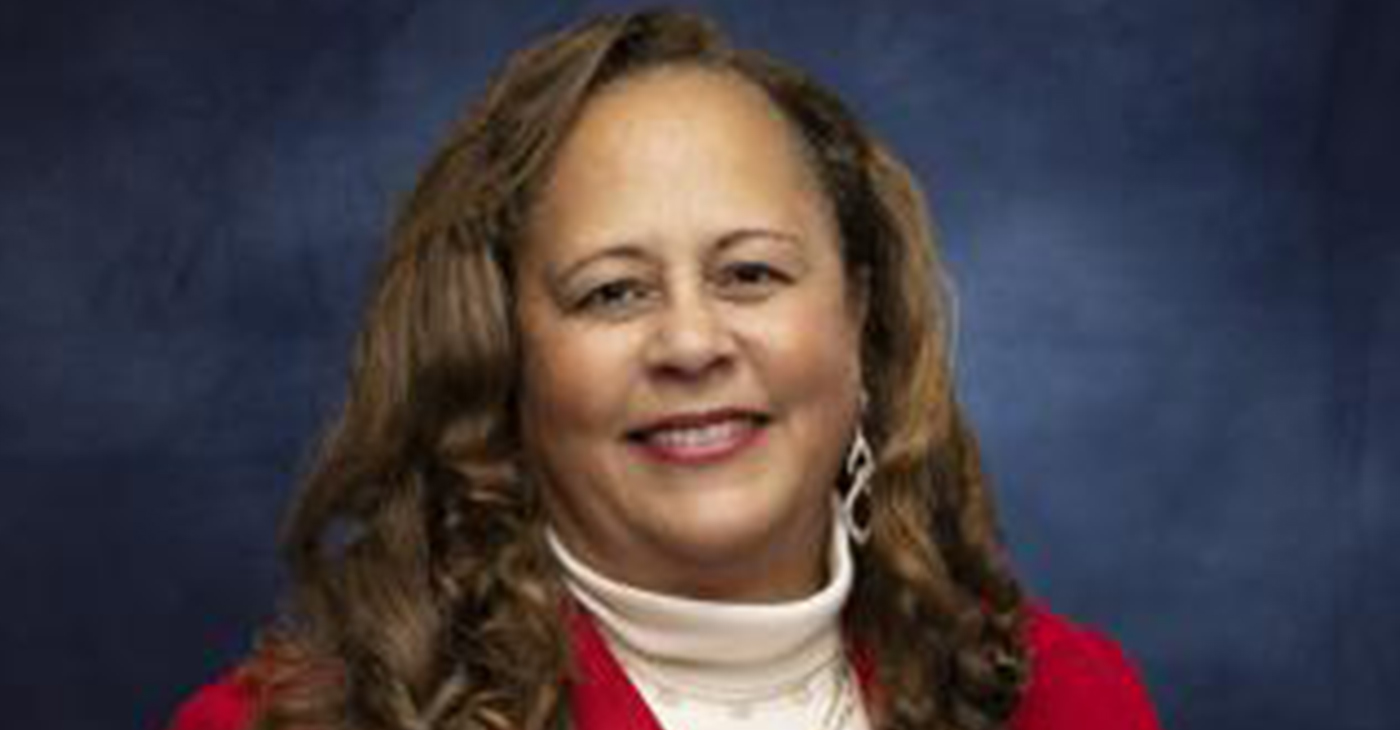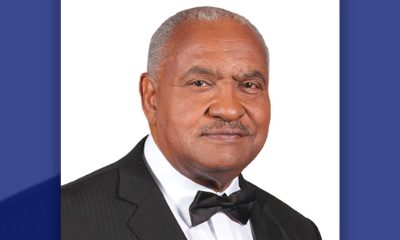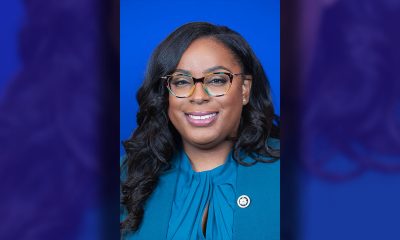Politics
House Scraps Vote on Confederate Flag in Federal Cemeteries

In this June 30, 2015 file photo, a Confederate flag flies at the base of Stone Mountain in Stone Mountain, Ga. (AP Photo/David Goldman, File)
DAVID ESPO, Associated Press
ANDREW TAYLOR, Associated Press
WASHINGTON (AP) — Retreating under pressure, House Republicans scrapped plans for a vote Thursday on allowing the display of Confederate flags at Park Service-run cemeteries after Democrats protested furiously that the banner celebrates a murderous, racist past.
“What exactly is the tradition of the Confederate battle flag that we’re supporting?” Rep. Hakeem Jeffries, D-N.Y. challenged supporters of the proposal, shortly before the GOP leadership announced its decision.
“Is it slavery, rape, kidnap, treason, genocide or all of the above?”
No Republican rose to respond, although some officials privately charged that Democrats had falsely accused GOP lawmakers of racism and said the proposal would merely have written Obama administration policy into law.
Speaker John Boehner, R-Ohio said it was time for “adults here in Congress to actually sit down and have a conversation about how to address the issue.”
Democratic protests aside, the vote had been slated for a politically awkward time — hours after the South Carolina Legislature decided to remove the Confederate flag from a pole on the grounds of the State capitol.
The decision abruptly halted debate on legislation providing funds for the Interior Department and related agencies. But the political significance was more far-reaching than an annual spending measure, marking the latest in a string of developments relating to the Confederate flag in the House.
Earlier in the week, lawmakers decided by voice vote and without controversy to ban the display of the Confederate flag in Park Service-run cemeteries.
But GOP leaders soon became concerned that the overall spending measure might fail — Democrats oppose it because they want more spending and some Republicans were unhappy with the prohibition on the flag.
That led to plans to reconsider the prohibition in a vote hurriedly set for afternoon — and a highly unusual statement by the measure’s chief Republican sponsor after the subsequent decision to reverse course.
Rep. Ken Calvert, R-Calif., and chairman of the panel with jurisdiction over Park Service funding, said the now-abandoned proposal “had been brought to me by Leadership at the request of some southern” GOP lawmakers, and also would have written into law existing National Park Service regulations approved by the Obama administration.
At the same time, he said he regretted not telling Democrats in advance about his plans.
Rather than accept any apology, Democrats attacked at both ends of Pennsylvania Avenue.
“These are these same House Republicans who voted for a party leader who once described himself as, quote, ‘David Duke without the baggage,’ ” said White House spokesman Josh Earnest. He referred to Rep. Steve Scalise, R-La., the third-ranking leader.
For her part, House Democratic Leader Nancy Pelosi offered legislation to remove all state flags containing any portion of the Confederate battle flag from the House side of the Capitol. Republicans prevented a vote on it by referring it to a committee — but Democrats slowed the tally by casting their votes manually instead of through an electronic tally system that is customarily employed.
At the same time, Boehner’s spokesman, Kevin Smith, accused Pelosi of a “cheap political stunt” after the speaker had called for a private talks on the issue. He said the bipartisan talks could potentially address Confederate symbols within the Capitol as well as at parks and cemeteries.
Whatever the political fallout, the now-defunct proposal would have permitted the limited display of the Confederate flag at Park Service-run cemeteries in states that observe a holiday commemorating the Confederacy, and only at the graves of rebels who died in the Civil War.
In line with a Park Service memorandum from 2010, it would have affected 10 graveyards, including four in Tennessee, three in Virginia and one each in Louisiana, Mississippi and Georgia.
Park Service spokeswoman Kathy Kupper said one of the Confederate’s grave was at Andersonville cemetery in Georgia and two each were at Shiloh in Tennessee and Vickburg in Mississippi.
Among the 20,000 graves at the Vicksburg National Memorial park in Mississippi are two that hold the remains of Confederates, according to Ray Hamel, a park ranger at the site. He said both men — one from Texas and one from Arkansas — died in a nearby Union hospital and were mistakenly buried in the U.S. cemetery when it was established in 1866.
Hamel said that on national Memorial Day at the park, volunteers place small a small American flag by the gravesite of each U.S. soldier, and the two Confederate graves are decorated with the national flag of the Confederate States of America, with three wide bars — red, white, red — and a blue canton corner with a circle of 13 white stars.
Ironically, Kupper said nine confederates rest in graves at Gettysburg, Pa. The state does not observe a holiday in memory of the Confederacy.
_____
Eds: AP reporters Erica Werner and Jim Kuhnhenn in Washington and Emily Wagster Pettus in Mississippi contributed to this story
Copyright 2015 The Associated Press. All rights reserved. This material may not be published, broadcast, rewritten or redistributed.
Activism
2025 in Review: Seven Questions for Assemblymember Lori Wilson — Advocate for Equity, the Environment, and More
Her rise has also included several historic firsts: she is the only Black woman ever appointed to lead the influential Assembly Transportation Committee, and the first freshman legislator elected Chair of the California Legislative Black Caucus. She has also been a vocal advocate for vulnerable communities, becoming the first California legislator to publicly discuss being the parent of a transgender child — an act of visibility that has helped advanced representation at a time when political tensions related to social issues and culture have intensified.

By Edward Henderson, California Black Media
Assemblymember Lori D. Wilson (D-Suisun City) joined the California Legislature in 2022 after making history as Solano County’s first Black female mayor, bringing with her a track record of fiscal discipline, community investment, and inclusive leadership.
She represents the state’s 11th Assembly District, which spans Solano County and portions of Contra Costa and Sacramento Counties.
Her rise has also included several historic firsts: she is the only Black woman ever appointed to lead the influential Assembly Transportation Committee, and the first freshman legislator elected Chair of the California Legislative Black Caucus. She has also been a vocal advocate for vulnerable communities, becoming the first California legislator to publicly discuss being the parent of a transgender child — an act of visibility that has helped advanced representation at a time when political tensions related to social issues and culture have intensified.
California Black Media spoke with Wilson about her successes and disappointments this year and her outlook for 2026.
What stands out as your most important achievement this year?
Getting SB 237 passed in the Assembly. I had the opportunity to co-lead a diverse workgroup of colleagues, spanning a wide range of ideological perspectives on environmental issues.
How did your leadership contribute to improving the lives of Black Californians this year?
The Black Caucus concentrated on the Road to Repair package and prioritized passing a crucial bill that remained incomplete during my time as chair, which establishes a process for identifying descendants of enslaved people for benefit eligibility.
What frustrated you the most this year?
The lack of progress made on getting Prop 4 funds allocated to socially disadvantaged farmers. This delay has real consequences. These farmers have been waiting for essential support that was promised. Watching the process stall, despite the clear need and clear intent of the voters, has been deeply frustrating and reinforces how much work remains to make our systems more responsive and equitable.
What inspired you the most this year?
The resilience of Californians persists despite the unprecedented attacks from the federal government. Watching people stay engaged, hopeful, and determined reminded me why this work matters and why we must continue to protect the rights of every community in our state.
What is one lesson you learned this year that will inform your decision-making next year?
As a legislator, I have the authority to demand answers to my questions — and accept nothing less. That clarity has strengthened my approach to oversight and accountability.
In one word, what is the biggest challenge Black Californians are facing currently?
Affordability and access to quality educational opportunities.
What is the goal you want to achieve most in 2026?
Advance my legislative agenda despite a complex budget environment. The needs across our communities are real, and even in a tight fiscal year, I’m committed to moving forward policies that strengthen safety, expand opportunity, and improve quality of life for the people I represent.
Activism
2025 in Review: Seven Questions for Assemblymember Tina McKinnor, Champion of Reparations, Housing and Workers’ Rights
In 2025, McKinnor pushed forward legislation on renters’ protections, re-entry programs, reparations legislation, and efforts to support Inglewood Unified School District. She spoke with California Black Media about the past year and her work. Here are her responses.

By Joe W. Bowers Jr., California Black Media
Assemblymember Tina McKinnor (D-Inglewood) represents
California’s 61st Assembly District.
As a member of the California Legislative Black Caucus (CLBC),
McKinnor was elected in 2022. She chairs the Los Angeles County Legislative Delegation and leads the Assembly Public Employment and Retirement Committee. McKinnor also served as a civic engagement director, managed political campaigns, and worked as chief of staff for former Assemblymembers Steven Bradford and Autumn Burke.
In 2025, McKinnor pushed forward legislation on renters’ protections, re-entry programs, reparations legislation, and efforts to support Inglewood Unified School District. She spoke with California Black Media about the past year and her work. Here are her responses.
Looking back on 2025, what do you see as your biggest win?
Assembly Bill (AB) 628. If rent is $3,000, people should at least have a stove and a refrigerator. It’s ridiculous that people were renting without basic appliances.
I’m also proud that I was able to secure $8.4 million in the state budget for people coming home from incarceration. That includes the Homecoming Project, the menopause program for incarcerated women, and the Justice Leaders Program.
How did your leadership help make life better for Black Californians this year?
After the Eaton Fire, I pushed to get the same kind of support for affected areas that wealthier regions get after disasters.
I also did a lot of work building political power— establishing the Black Legacy PAC and California for All of Us PAC so we could support Black candidates and educate voters. We also called voters to make sure they understood Prop 50.
People need to understand this: there are only 12 Black legislators in the Capitol. Folks act like we can just walk in and pass reparations, but that’s not how it works.
What frustrated you most this year?
The governor did not have the political will to sign these bills: AB 57 and AB 62. They both passed overwhelmingly in the Assembly and the Senate. We did the work. The only person who didn’t have the political will to sign them was the governor.
The public needs to ask the governor why he didn’t sign the bills. We can’t keep letting people off the hook. He has to answer.
I also introduced AB 51 — the bill to eliminate interest payments on Inglewood Unified School District’s long-standing state loan — held in the Appropriations Committee. That was frustrating,
What inspired you most in 2025?
The civil rights trip to Alabama was life changing. We visited the Legacy Museum and the National Memorial for Peace and Justice. We took members of the Black, Latino, Jewish, and API caucuses with us. It changed all of us.
People aren’t always against us — they just don’t know our history.
What’s one lesson from 2025 that will shape how you approach decisions next year?
The legislative trip to Norway taught me that collaboration matters. Government, labor, and industry sit down together there. They don’t make villains. Everybody doesn’t get everything they want, but they solve problems.
What’s the biggest challenge facing Black Californians in one word?
Inequity. It shows up in housing, wealth, stress – all these things.
What’s the number one goal you want to accomplish in 2026?
Bringing back AB 57 and AB 62, and securing money for the Inglewood Unified loan interest forgiveness.
Activism
2025 in Review: Seven Questions for Sen. Laura Richardson, Who Made Legislative History This Year
Before elected office, she served as a legislative staffer at the local, state, and federal levels and built a strong academic foundation, earning a political science degree from UCLA and an MBA from USC.

By Edward Henderson, California Black Media
Elected in November 2024 to represent California’s 35th Senate District, Sen. Laura Richardson (D-San Pedro) brings decades of experience to her role.
Before elected office, she served as a legislative staffer at the local, state, and federal levels and built a strong academic foundation, earning a political science degree from UCLA and an MBA from USC.
Richardson says she remains deeply committed to empowering residents, strengthening neighborhoods, and supporting the local economy.
For example, SB 748, a bill she authored that Gov. Newsom signed into law this year, allows cities to use existing homelessness funds to clear unsafe RV encampments, and another measure aimed at expanding provider access for Medi-Cal patients.
California Black Media (CBM) spoke with Richardson about her successes and disappointments over the past year and her plans for 2026.
What stands out as your most important achievement this year?
Being number one in getting the most bills signed by a freshman senator. Our team and staff were able to effectively move legislation through committees in both the Senate and Assembly and gain the governor’s support.
How did your leadership contribute to improving the lives of Black Californians?
Securing overall agency support from the governor to begin the work of understanding and documenting descendants of slavery. The discussion around “40 acres and a mule” will be ongoing for many years, but moving forward with creating an agency—although not fully funded—was significant. They were baby steps, but they were steps.
What frustrated you the most this year?
The administration. Even though federal and state roles differ, California has its own values and priorities. When the federal government makes cuts that impact Californians, the state legislature feels the need to backfill to protect people. It was challenging and frustrating.
What inspired you the most this year?
SB 237, which I was a joint principal author on, inspired me. It dealt with fuel stability. Two refineries closed, and several others are barely hanging on. Even as we work toward zero emissions, we still need a certain amount of fuel. SB 237 opened up some of the fuel potential in Kern County, and there’s a pipeline from Kern County down to my district.
What is one lesson you learned this year that will inform your decision-making next year?
Engage the governor’s staff earlier. I’m going to push to involve the governor’s legislative staff sooner.
In one word, what is the biggest challenge Black Californians are facing right now?
Affordability. No matter how much you make, everything is more expensive—gas, groceries, insurance, mortgages. Costs keep rising while salaries don’t.
What is the goal you want to achieve most in 2026?
Creating a process for dealing with abandoned cemeteries.
The last piece—not specific to this year but building toward the future—is figuring out how people and businesses in the district and in California can participate in major events like the Olympics, FIFA, and the Super Bowl, all of which are taking place here.
-

 Alameda County4 weeks ago
Alameda County4 weeks agoSeth Curry Makes Impressive Debut with the Golden State Warriors
-

 #NNPA BlackPress4 weeks ago
#NNPA BlackPress4 weeks agoLIHEAP Funds Released After Weeks of Delay as States and the District Rush to Protect Households from the Cold
-

 #NNPA BlackPress4 weeks ago
#NNPA BlackPress4 weeks agoSeven Steps to Help Your Child Build Meaningful Connections
-

 #NNPA BlackPress4 weeks ago
#NNPA BlackPress4 weeks agoSeven Steps to Help Your Child Build Meaningful Connections
-

 #NNPA BlackPress4 weeks ago
#NNPA BlackPress4 weeks agoTeens Reject Today’s News as Trump Intensifies His Assault on the Press
-

 Bay Area2 weeks ago
Bay Area2 weeks agoPost Salon to Discuss Proposal to Bring Costco to Oakland Community meeting to be held at City Hall, Thursday, Dec. 18
-

 #NNPA BlackPress4 weeks ago
#NNPA BlackPress4 weeks agoFBI Report Warns of Fear, Paralysis, And Political Turmoil Under Director Kash Patel
-

 Activism2 weeks ago
Activism2 weeks agoMayor Lee, City Leaders Announce $334 Million Bond Sale for Affordable Housing, Roads, Park Renovations, Libraries and Senior Centers


























































